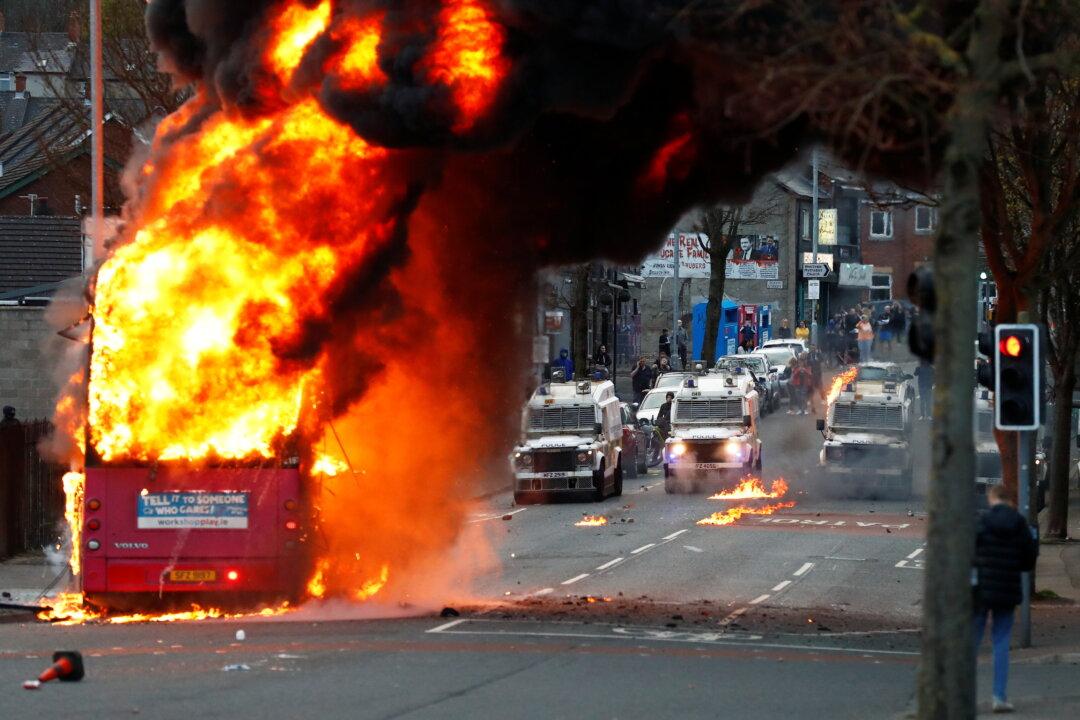BELFAST—Crowds of youths in a pro-British area of Belfast set a hijacked bus on fire and attacked police with stones in the latest of a series of nightly outbreaks of violence that began last week.
British Prime Minister Boris Johnson said he was “deeply concerned” by the violence, which has injured dozens of police officers in recent days as protesters burned cars and hurled petrol bombs at police.





